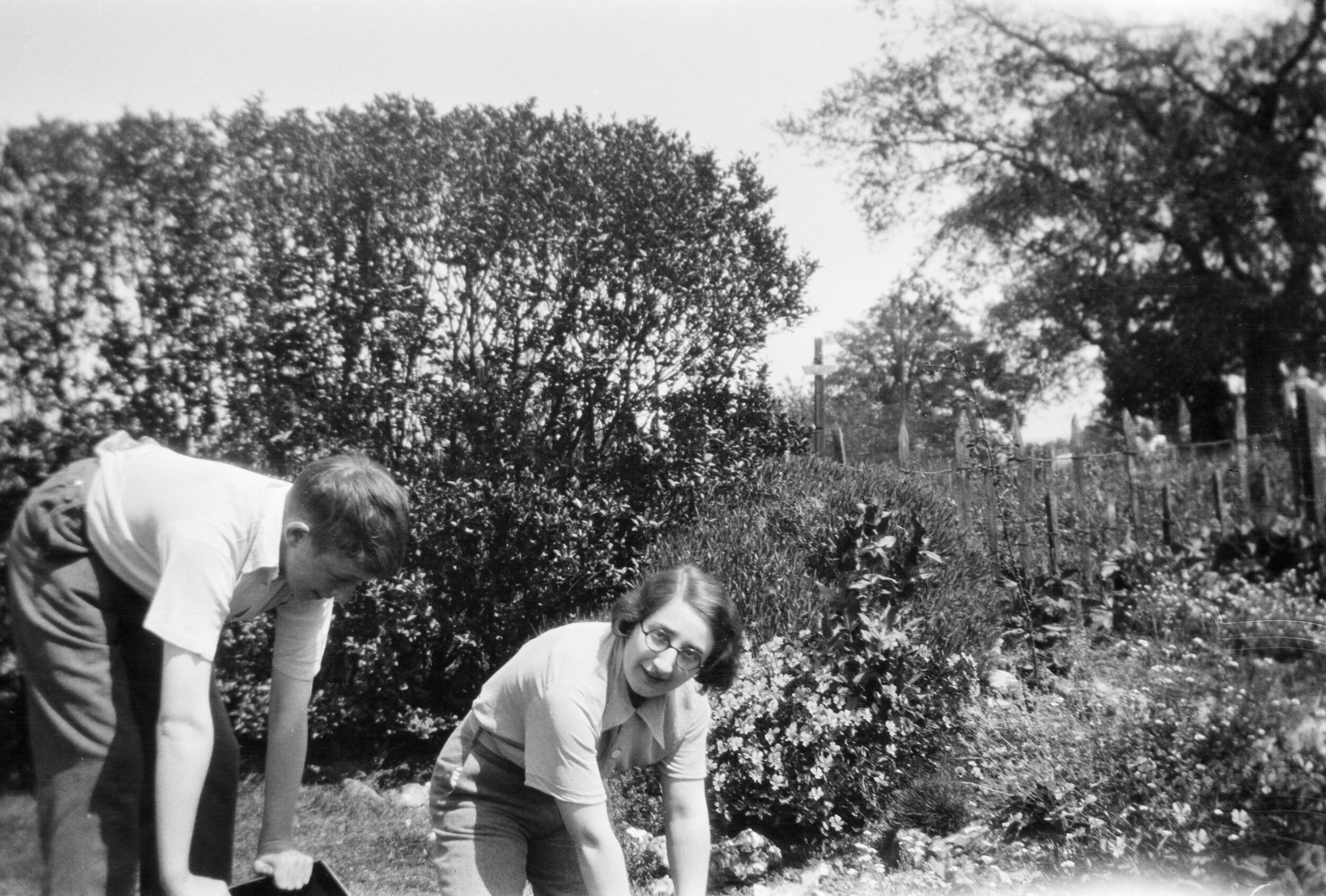The Old Ways
What can we learn from the post-war generation about consuming less waste and the great outdoors? Did our grandparents hold the key all along?
By Erin O’Connor
For as long as I’ve known them, my grandparents have been avid gardeners. Even long before I was born, gardening had been a huge part of their livelihood, inspiring my mum also to become a keen amateur gardener. For them, it’s a ritual. Every day, they potter about their garden, tending to any plants that need a bit more water, dead-heading any (taking off the dried bits so they can grow again) and planting new seeds that’ll eventually blossom into colour when the time’s right.
I’ve never really thought about it until now, but seeing how lots of people have been rolling up their sleeves and learning how to grow plants during lockdown sparked a curious thought in me: what’s so great about gardening? When you’ve got dirt under your nails and twigs poking out of your hair (would be the case if I were doing it), are there positive life lessons to be learnt?
So I sat down to have a good old chat with my Nana and Grandpa over Facetime (they’re up in Leicestershire and I’m down in London) about their love of gardening and why it has such an important part to play in their lasting happiness and wellbeing.
Nature is calming
For them, the greatest thing about being outdoors and getting stuck in is the calmness that nature brings - it’s like therapy. “The fresh air is so good for you” my Nana says, and “It is an opportunity to step away from any stresses indoors - you grandchildren used to stress us out with your shenanigans, so we’d come outside for a breather!” When you’re focusing on carefully cultivating the land, or plotting where you’re going to sprinkle your seeds, there’s very little room for stress and worry.
Persevere, and reap the rewards
Gardening is also very much a long game - you don’t get the instant gratification of a beautiful garden full of colour minutes (or even weeks!) after you’ve planted seeds. But that’s the beauty of it - you can watch your garden grow and change over time, with various plants and flowers popping up in different seasons - currently my nana is enjoying the blossoming of these flowers that resemble Chinese lanterns (she told me the Latin name, but it went over my head…), while my grandpa is getting ready to get his runner beans off the stalks. “Fresh veg out the garden, you can’t beat that!” he says delightfully.
Less Waste
Growing up in wartime instilled in them the importance of not wasting what you’ve got. Back then they would grow practically everything they needed to live off - now it’s more of a balance between what they can grow in their garden and then getting the rest of their food from the shops.
Asking my nana whether she thought growing their own fruits and veg helped with reducing waste, she said “well of course! We don’t like to waste anything, and we only buy what we need, and perhaps a treat or two, like some chocolate for your grandpa. We don’t like to be greedy.”
Just as being patient with flower buds and watching them eventually burst into colour, taking the time to grow food then being able to eat what you sow makes you truly appreciate what you have.
“Back when I was a young lad, we used to have to dig and grow vegetables in the afternoons at school. So it may not have done any good for my education, but I do know how to live self-sufficiently!”
A place for every being
Their garden isn’t just a space for them to enjoy, but also for other living beings too. It was so lovely to hear my nana speak about all the different birds and creepy crawlies that have taken up home in their garden - she spoke of them so fondly, as though they were her own children!
“You see, Erin, I have to monitor the bird feed, to make sure the pigeons don’t steal food from the little ones!” How sweet is that…
My grandpa was quick to mention that he likes to put out rich tea biscuits for the birds - I mean, does it get any more British than that?
It’s also a place that they can share with others - so often they have friends and family over, to sit out in the garden with a cup of tea and share the beauty of nature around them. They also frequently grow vegetables for their friends to enjoy, helping those who may not have the space or ability to grow things themselves.
I know that not all of us have garden space that we can cultivate, particularly if you’re a city-dweller with just a couple windowsills available, or, if you’re lucky, a balcony… but even just a few small pots of herbs or flowers could offer up similar benefits. Focusing your attention on growing something, coming back to it each day and watching something beautiful grow over time can do wonders for mental calmness.
erin o’connor
Erin is a writer based in London. When’s she’s not attending a space rave, or attempting to make her own face scrub she is writing about anything and everything to do with wellbeing and mindfulness.
Would you like to write for us?
We are looking for people to share their stories, practices and passions at justbreatheproject.com. Do you have something to share? It could be a cause you think we should know about, a new way of thinking, a book that helped you through a tough time or perhaps, you have a talent you'd like to share? If you are interested please send a headline and a short intro to submission@justbreatheproject.com





Cafe’s all over the city are popping up with this stuff in it, but what’s all the fuss about? We investigate.